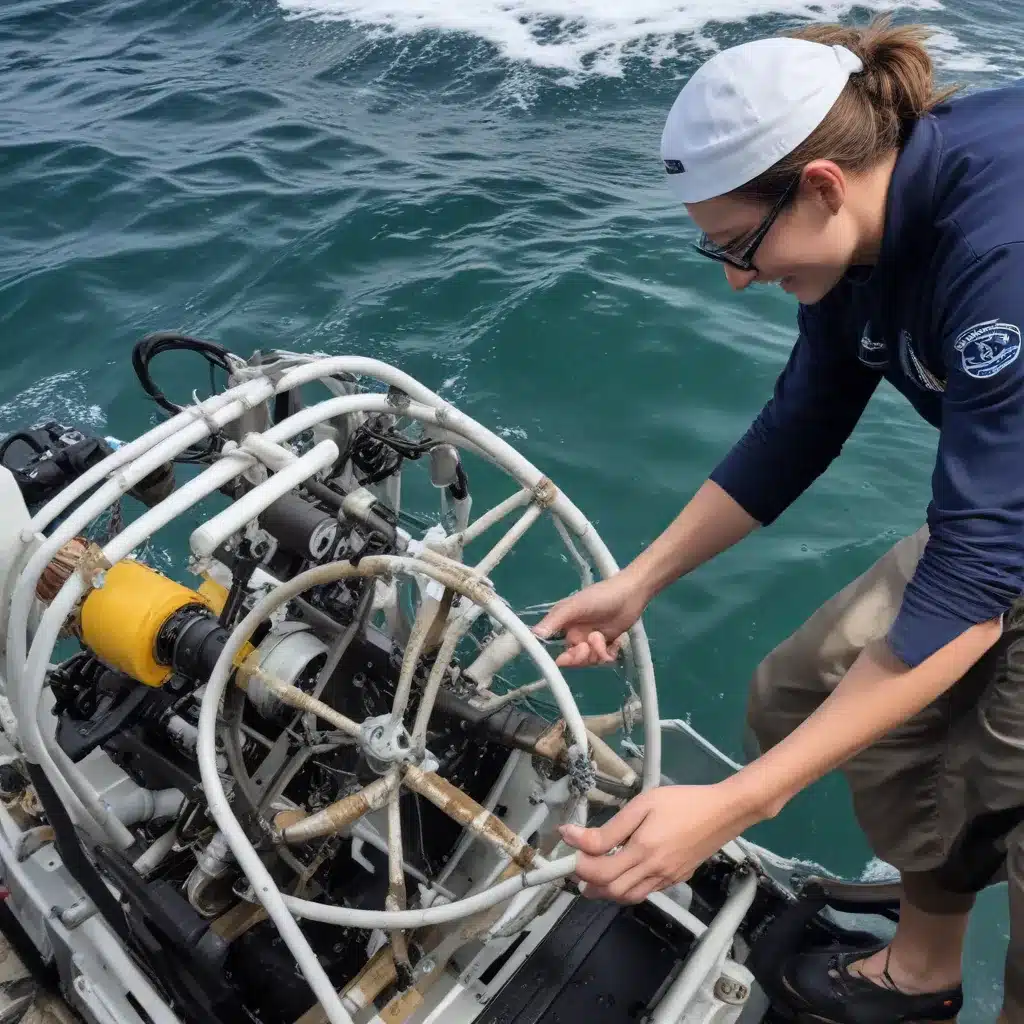
Discovering the Wonders of the Deep
Our oceans are vast, mysterious, and teeming with life. From the sunlit surface to the darkest depths, the marine world holds countless secrets and marvels waiting to be uncovered. Thanks to advances in ocean exploration technology, scientists and researchers are diving deeper than ever before, shedding light on the diverse ecosystems and captivating species that call the ocean home.
NOAA’s Ocean Exploration program is at the forefront of this exciting journey, leading expeditions to study the unknown regions of our seas. By utilizing state-of-the-art submersibles, remotely operated vehicles (ROVs), and autonomous underwater drones, these explorers are venturing into previously inaccessible areas, making groundbreaking discoveries that are transforming our understanding of the marine environment.
One such discovery is the abundance of water on Earth, which may be the key to the origin of life. As scientists explain, the presence of an ocean may have played a crucial role in the emergence of the first living organisms, either in deep-sea hydrothermal vents or in coastal tide pools. This remarkable finding underscores the vital connection between the ocean and the very foundations of life on our planet.
Exploring the Unseen Depths
While the ocean covers more than 70% of the Earth’s surface, less than 20% of the seafloor has been directly mapped. This vast, largely unexplored realm is a treasure trove of secrets, home to a multitude of undiscovered species and unique ecosystems. The recent expedition by the Schmidt Ocean Institute’s research vessel Falkor, for example, uncovered a stunning array of deep-sea creatures, including bizarre, glowing creatures and a previously unknown species of black coral.
These explorations not only satisfy our innate curiosity about the unknown but also have profound implications for our understanding of the ocean’s role in sustaining life on Earth. As the Schmidt Ocean Institute’s collaborators explain, the ocean produces over half of the world’s oxygen, regulates the planet’s climate, and supports diverse marine ecosystems that provide food, livelihoods, and recreational opportunities for millions of people.
By mapping the seafloor, studying the behavior and adaptations of deep-sea organisms, and unraveling the complex web of interactions within marine environments, scientists are uncovering crucial insights that can help us better protect and manage our oceans. This knowledge is essential as we face the growing challenges posed by climate change, overfishing, and other human-induced stresses on the marine ecosystem.
The Power of Ocean Technology
Advancements in ocean exploration technology have been instrumental in unlocking the secrets of the deep. From remote-controlled submersibles that can dive thousands of feet below the surface to autonomous underwater drones that can survey vast areas of the seafloor, these cutting-edge tools are revolutionizing the way we explore and understand the ocean.
One exciting example is the use of “telepresence” technology, which allows scientists and researchers to control and observe deep-sea exploration in real-time, even from thousands of miles away. This approach, pioneered by the Ocean Exploration Trust, enables a wider audience to participate in and learn from these expeditions, fostering a greater appreciation for the wonders of the ocean.
Moreover, the development of sophisticated sensors and imaging systems has allowed for unprecedented detail in mapping the seafloor and studying the behavior and habitats of marine life. These advancements are not only aiding scientific discovery but also informing critical decisions about ocean conservation, resource management, and disaster response.
As we continue to push the boundaries of ocean exploration, the Stanley Park High School community can look forward to new and exciting discoveries that will deepen our understanding of the ocean’s role in sustaining life on our planet. By following the work of organizations like NOAA and the Schmidt Ocean Institute, students and families can stay informed about the latest breakthroughs and engage with the captivating world beneath the waves.
Inspiring the Next Generation of Ocean Explorers
Inspiring the next generation of ocean enthusiasts and scientists is a key priority for many ocean exploration organizations. Through educational initiatives, hands-on experiences, and collaborative partnerships, these groups are working to cultivate a new wave of ocean advocates and problem-solvers.
One such program is the Ocean Exploration Trust’s Young Explorers Program, which offers college students the opportunity to join research expeditions and learn from experienced scientists and engineers. By immersing participants in the excitement of deep-sea exploration, the program aims to spark a lifelong passion for understanding and protecting the ocean.
Similarly, the National Oceanic and Atmospheric Administration (NOAA) has developed a range of educational resources and outreach initiatives to engage students and the public in ocean-related topics. From virtual field trips to interactive marine science lessons, these programs are designed to inspire the next generation of ocean stewards and inspire them to pursue careers in the field.
At Stanley Park High School, we recognize the importance of fostering this enthusiasm for the ocean. By staying up-to-date with the latest developments in marine science and ocean technology, our students and families can discover new ways to get involved, whether through hands-on activities, citizen science projects, or even future career paths.
Conclusion
The ocean is a vast, awe-inspiring realm that continues to captivate and challenge our understanding. Through the tireless efforts of ocean exploration organizations, researchers, and innovative technologists, we are peeling back the layers of mystery that have long shrouded the depths, revealing a world teeming with life, wonder, and the potential to unlock the very origins of our planet.
As we continue to explore and unravel the secrets of the ocean, the Stanley Park High School community can look forward to new discoveries, breakthroughs, and opportunities to get involved in this exciting frontier of scientific exploration. By staying informed and engaged, we can all play a role in protecting and preserving the health of our oceans for generations to come.

